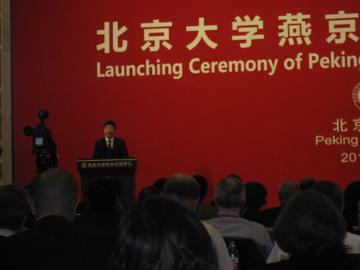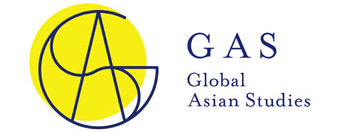“Yenching Academy” and Global Japan Studies By Professor Shigeto Sonoda
Professor Shigeto Sonoda (Institute for Advanced Studies on Asia and Graduate School of Interdisciplinary Information Studies, The University of Tokyo)


On May 5, 2014, an international symposium entitled “The Future of the Research University in the Age of Globalization: Innovation in Talent Cultivation” was convened at the Yinjie Exchange Center of Peking University. Symposium participants exchanged opinions on the issues of how to carry out education in research universities that recruit students worldwide based on development of ICT technologies, and what strategies are necessary to promote research and education. Participated by presidents of Seoul National University, National University of Singapore, Sungkyunkwan University, and University of Hong Kong, and vice presidents from Free University of Berlin, University of Melbourne, Stanford University, and Heidelberg University, this symposium was marked by the impressive enthusiasm of major universities of Asia.
The symposium turned out to be just a magnificent prelude. The major event after the prelude was the launching ceremony of the Yenching Academy held at the Center in the evening. Representatives of leading universities across the world were invited to the announcement ceremony of this new program of Peking University.
While the program does not need introduction here since its homepage provides outlining information, several observations can be made. 1. This program has in mind the Schwarzman Scholars program at Tsinghua University; 2, in contrast to the Tsinghua program which is intended for training, with private funds, Americans to be well-versed in China affairs, Yenching Academy features a publicly funded English program targeting Chinese students; and 3, in contrast to the Tsinghua program which is dominated by practical studies such as business management, Yenching Academy aims for fostering humanities-centered knowledge of China.
From the speeches of leading figures of Peking University, one can sense a strong will of China to bring world’s intellect to the University. Such phrases as “to correct the expanding misunderstanding of China by the world” and “to train the world’s elite that understand Chinese history and culture as well as Chinese language,” transmit a cultural nationalism that aspires to “overcome the humiliated modern history” and to realize “the great revival of the Chinese nation”.
Yenching Academy is a residential one-year program that recruits 100 students from the world every year. It is a super-elitist education program with many of the students receiving large amount of scholarship. Participants from the University of Tokyo received the insinuation and moaned that “can’t we also try to do this at our university? If possible, I will try my best to collect donations from businesses.” But, what kind of education program on earth can Global Japan Studies provide?
These are some thoughts after attending Chinese-like spectacular launching ceremony in Peking University.



